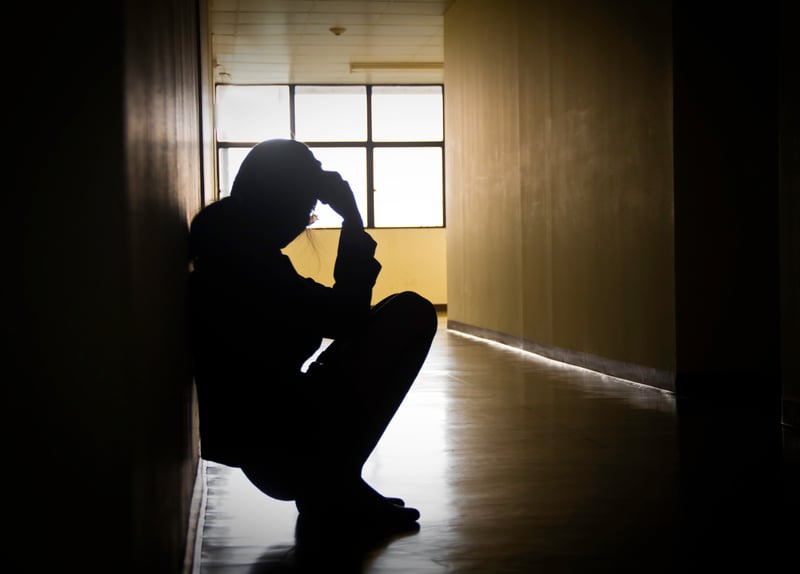Get Healthy!

- Amy Norton
- Posted May 23, 2023
PTSD, Other Mental Health Ills Haunt Gunshot Survivors
For people who survive gunshot wounds, the trauma may leave mental scars that worsen with time, a new study finds.
Among 87 adults treated for gun injuries at a Wisconsin trauma center, many had worsening symptoms of post-traumatic stress disorder (PTSD) and depression six months later.
The findings, published May 22 in the Annals of Internal Medicine, come from one of the few studies that has tracked the long-term mental health of gunshot victims.
For years, gun violence research was stymied in the United States after Congress suspended federal funding for it in 1996. That changed just a few years ago.
"For a long time, we weren't able to do firearms research, so we don't really know a lot about these long-term outcomes," said Dr. Peter Ehrlich, director of the pediatric trauma center at the University of Michigan's C.S. Mott Children's Hospital.
Ehrlich, who was not involved in the new research, published a study last year that looked at the mental health of U.S. children and teenagers who'd sustained gun injuries -- and the findings were similar.
Of 1,450 kids injured by guns, 35% were newly diagnosed with a mental health condition in the year afterward -- most often PTSD or substance abuse. That compared with 26% of U.S. kids who were injured in a motor vehicle crash.
Ehrlich said that while the new study was small, it was well done and highlights the wider reality.
"There are consequences of gun violence that go beyond the physical," he said. "There can be long-lasting effects on mental health."
The study comes at a time when gun deaths across the United States are on the rise. In 2021, such deaths reached their highest level in 40 years -- at just under 49,000, according to Giffords Law Center, a nonprofit that promotes gun control.
But many more Americans survive gun injuries and then live with the aftermath. In the past decade, more than 1 million Americans have been shot, according to Giffords.
For the new study, researchers at the Medical College of Wisconsin, in Milwaukee, followed 87 adults who'd been treated at their institution for gun wounds. None of the injuries were self-inflicted.
The patients answered standard questionnaires on mental health symptoms and physical health-related quality of life two times: one month and six months after their injury.
On the whole, the study found, both PTSD symptoms and depression only grew worse over time. At six months, the group's average PTSD score surpassed the threshold for diagnosing the condition, while their average depression score neared the mark for diagnosing that disorder. At both one and six months, patients typically reported a poor physical health-related quality of life.
Individuals did range widely in how they fared, said lead researcher Sydney Timmer-Murillo, a postdoctoral fellow in health and trauma psychology.
And one question for future studies, she said, is to figure out which factors make some people more vulnerable to worsening mental health.
According to both researchers, it's easy to see how gunshot victims would often struggle in the aftermath. Many likely live in communities marked by gun violence, and that makes it especially hard to recover from the trauma.
"People don't experience gun violence in a vacuum," Timmer-Murillo said.
It's critical, she said, that the follow-up care of gun injury survivors be "comprehensive," aimed at helping them recover both physically and mentally.
At the Wisconsin trauma center, patients do routinely have mental health screenings while they are in the hospital recovering from their injury, Timmer-Murillo said. That's, in part, to help surmount the limited access to mental health care that many patients would face after leaving the hospital.
Broadly, though, many gunshot survivors do not receive such screening, Ehrlich said.
In a 2022 study of U.S. trauma centers, researchers found that only a minority routinely screened trauma patients for PTSD or depression, while 30% said they had screening and treatment programs specifically for firearm injury patients.
Recently, though, the American College of Surgeons issued new guidelines for trauma centers on mental health screenings -- with the goal of identifying people at risk after any traumatic injury.
When it comes to gun injuries, specifically, survival rates have been improving, Timmer-Murillo noted. Then the issue is "what kind of burden are these people carrying as survivors?" she asked.
Ehrlich agreed, and noted that the issue is not only one of big cities, but of communities across the United States.
"This is a uniquely American problem," he said.
More information
The advocacy group Everytown for Gun Safety has resources for gun violence survivors.
SOURCES: Sydney Timmer-Murillo, PhD, postdoctoral fellow, health and trauma psychology, Medical College of Wisconsin, Milwaukee; Peter Ehrlich, MD, MSc, professor, surgery, medical director, Level 1 Pediatric Trauma Center, C.S. Mott Children's Hospital, University of Michigan, Ann Arbor; Annals of Internal Medicine, May 22, 2023






